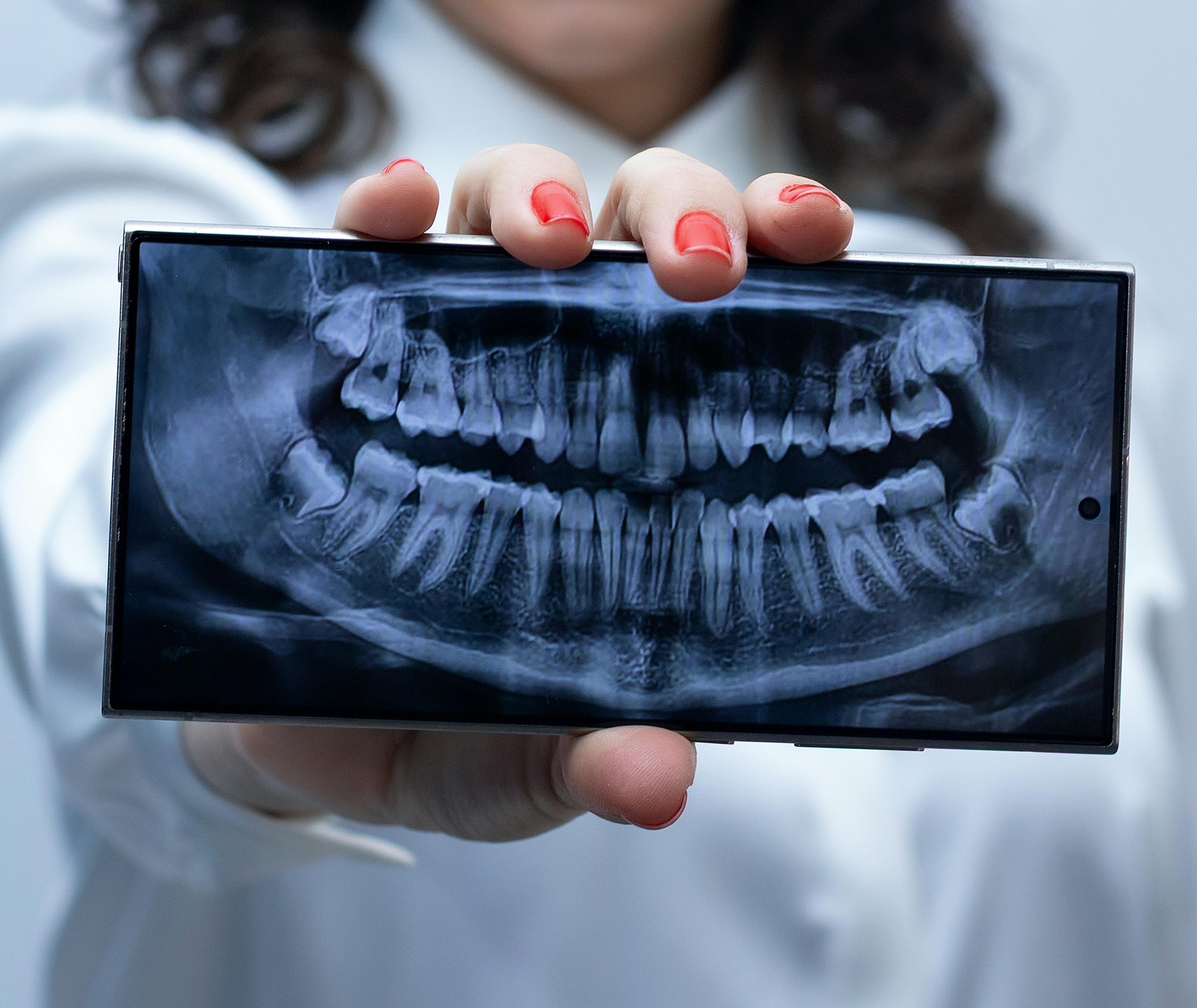
If you’ve ever experienced a sudden, sharp jolt of pain in your mouth when sipping something cold or biting down on food, you might have dealt with tooth nerve pain. It’s one of those sensations you can’t ignore—and often, it’s your body’s way of telling you that something deeper is going on with your oral health.
In this article, we’re diving into what tooth nerve pain really means, what causes it, and how you can treat (or even prevent) it. Whether you’re dealing with lingering discomfort or want to be proactive, this guide has you covered.
What Is Tooth Nerve Pain, Really?
Tooth nerve pain refers to discomfort originating from the nerves inside your tooth or the surrounding dental tissues. It can feel like:
- A sharp, stabbing pain
- A dull, persistent ache
- Sudden zaps triggered by hot, cold, or sweet foods
- Pain that radiates to the jaw, ear, or head
Unlike general toothaches, nerve pain often signals a deeper issue—usually involving the pulp of the tooth, where nerves and blood vessels live.
Why Does Tooth Nerve Pain Happen?

To understand the causes, let’s look at what’s inside a tooth. Each tooth has multiple layers:
- Enamel – the hard, outermost layer that protects the tooth from wear and bacterial invasion.
- Dentin – lies beneath the enamel. It’s more porous and sensitive, allowing sensations to reach the nerve.
- Pulp – the soft inner core that houses nerves, blood vessels, and connective tissue.
When the enamel is compromised—whether from decay, injury, or gum recession—external elements can reach the dentin or pulp. The pulp contains nerves that are incredibly sensitive, so even minor exposure can lead to discomfort or sharp pain.
Here are some common causes of tooth nerve pain, explained in more detail:
1. Cavities (Tooth Decay)
Tooth decay doesn’t just eat away at the enamel—it opens the door for bacteria to reach deeper layers. Once the cavity extends into the dentin or pulp, the nerve becomes exposed and irritated. This is why even small cavities can cause intense sensitivity or throbbing pain.
2. Cracked or Chipped Teeth
Cracks or chips might seem minor, but they can run deep. A hairline crack can allow bacteria to sneak inside and inflame the pulp. You might not always see the damage, but if a tooth suddenly starts hurting after biting something hard, it’s worth getting checked.
3. Receding Gums
When gums recede—due to aggressive brushing, gum disease, or age—the root of the tooth becomes exposed. This root surface doesn’t have protective enamel, making it easy for temperature changes or acids to trigger the nerve endings.
4. Dental Procedures
Procedures like fillings, crowns, or deep cleanings can temporarily aggravate the nerve, especially if the tooth was already inflamed or the work was close to the pulp. This type of pain usually fades, but if it doesn’t, the pulp might be more affected than expected.
5. Bruxism (Teeth Grinding)
Constant grinding puts excessive pressure on teeth. Over time, this wears down enamel and can cause tiny fractures, both of which increase the risk of nerve irritation. Bruxism can also strain the ligaments around the teeth, adding to the discomfort.
6. Infections or Abscesses
A dental abscess forms when an untreated cavity allows bacteria to infect the pulp. This infection creates pressure as pus builds up around the root, causing severe, often throbbing pain. In some cases, the pain might spread to the jaw or face and be accompanied by swelling.
7. Sinus Pressure
Surprisingly, not all nerve pain comes from the teeth themselves. The upper back teeth are close to the sinus cavities, and when those sinuses are inflamed or congested, they can push against the roots of your teeth. This creates a pressure-like tooth pain that feels similar to nerve discomfort.
How Do You Know If It’s Nerve Pain and Not Something Else?
Tooth nerve pain is distinct from other kinds of dental discomfort. Signs that your tooth pain is nerve-related include:
- Sudden or intense pain without warning
- Sensitivity to temperature that lingers after the trigger is gone
- Pain that wakes you up at night
- Swelling or pus near the tooth (a sign of infection)
If your tooth pain doesn’t go away or worsens over time, it’s a strong sign that the nerve is involved.
What Can You Do at Home for Tooth Nerve Pain?
If you can’t get to the dentist right away, there are a few things you can try to manage the pain temporarily:
- Saltwater rinse – helps reduce inflammation and cleans the area
- Cold compress – apply to the cheek to reduce swelling
- Over-the-counter pain relievers – ibuprofen or acetaminophen can ease discomfort
- Avoid trigger foods – especially very cold, hot, or sugary items
- Clove oil – contains eugenol, a natural pain reliever with numbing properties
These remedies don’t fix the underlying problem but can offer short-term relief.
When Should You See a Dentist?
Tooth nerve pain is rarely something that resolves on its own. You should definitely book a dental visit if:
- The pain lasts more than a couple of days
- You notice swelling, bleeding, or pus
- There’s visible damage to your tooth
- OTC pain relievers aren’t helping
The longer you wait, the more likely the problem will get worse—and possibly more expensive to fix.
What Are the Treatment Options for Tooth Nerve Pain?
Treatment depends on the cause and severity of the pain. A dentist may recommend one of the following:
1. Filling or Crown
If decay is the issue, a filling or crown may be enough to protect the nerve and restore the tooth.
2. Root Canal
If the pulp is infected, a root canal is often the best option. It removes the infected tissue and seals the tooth.
3. Extraction
If the tooth is too damaged to save, removing it may be the only option to stop the pain.
4. Gum Treatment
For gum recession, treatments like scaling and root planing or gum grafts might be recommended.
5. Night Guard
If grinding is the problem, a custom night guard can protect your teeth and reduce stress on the nerve.
Can You Prevent Tooth Nerve Pain?
Absolutely. While not every cause is preventable, good oral hygiene and some lifestyle choices go a long way. Try these tips:
- Brush twice a day with a fluoride toothpaste
- Floss daily to prevent gum disease
- Visit your dentist regularly (every 6 months)
- Limit sugary and acidic foods
- Don’t ignore minor discomfort – early treatment can prevent bigger problems
- Wear a mouthguard if you grind your teeth
What About Tooth Nerve Pain After Dental Work?
It’s not unusual to experience some nerve sensitivity after procedures like:
- Fillings
- Crowns
- Deep cleanings
This type of nerve pain is usually temporary. However, if it lasts more than a couple of weeks or gets worse, you should check in with your dentist to rule out complications.
Is It Ever Okay to Ignore Tooth Nerve Pain?
In short—no. Ignoring the pain could lead to:
- Worsening infection
- Tooth loss
- Spread of infection to other parts of the body
- Costlier treatments later on
Pain is your body’s signal that something is wrong. The sooner you address it, the better your chances of saving the tooth (and your money).
Tooth Nerve Pain and Diet: Is There a Link?

Yes, what you eat can play a big role in triggering or preventing nerve pain. Sugary and acidic foods, for example, can erode enamel and expose sensitive dentin. Meanwhile, foods high in calcium and phosphate—like leafy greens, dairy, and nuts—help strengthen enamel and support overall tooth health. Drinking enough water and chewing sugar-free gum can also help rinse away bacteria and support saliva production, which is your mouth’s natural defense system.
Can Stress Make Tooth Nerve Pain Worse?
Believe it or not, stress can absolutely contribute to nerve-related pain. When you’re under stress, you may clench your jaw or grind your teeth—often without realizing it. This puts pressure on your teeth and the nerves inside them. Over time, this wear and tear can lead to inflammation or aggravate existing issues. If stress is a factor, it might help to explore stress-relief techniques or ask your dentist about getting fitted for a mouthguard.
Can Weather Affect Tooth Nerve Pain?
Surprisingly, yes. Some people notice tooth sensitivity or nerve pain flaring up when the weather changes—especially during cold snaps. This happens because cold air can cause the tooth to contract slightly, putting stress on areas that may already be weakened by cracks or decay. If your teeth hurt more in winter or during windy days, it could be a sign of underlying issues like gum recession or enamel wear that’s exposing the nerve.
How Long Does Tooth Nerve Pain Last?
The duration really depends on the cause. If it’s due to a temporary irritation—like after a filling—it could fade within a few days. If the pain is caused by infection or nerve damage, it won’t go away without treatment. In some cases, tooth nerve pain can come and go for weeks, getting worse each time. If the pain persists or keeps coming back, that’s a strong sign it needs professional attention.
Final Thoughts
Tooth nerve pain can be a real disruption—but it’s also an opportunity to get ahead of a problem before it worsens. Whether it’s a sign of decay, damage, or infection, identifying the cause and acting fast is key.
If you’re currently dealing with tooth nerve pain, don’t try to tough it out. Schedule a dental appointment, use temporary relief wisely, and commit to preventive care moving forward.
Your teeth—and your nerves—will thank you.

